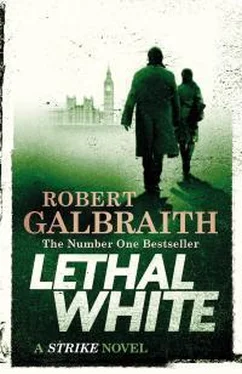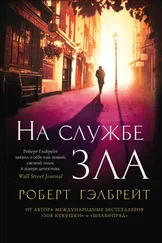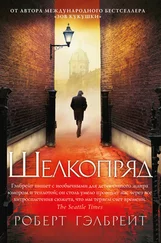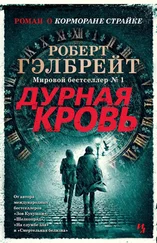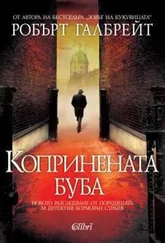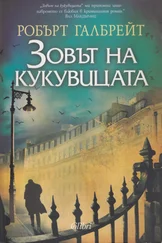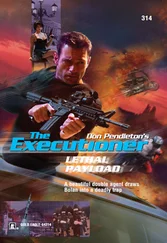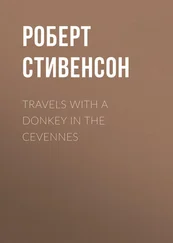As soon as the Asian man began to speak, however, Jimmy’s expression clouded. As they talked in low voices in the middle of the rapidly emptying room, Flick and a cluster of young people loitered nearby, waiting for Jimmy. They seemed to consider themselves above manual labour. The community centre worker cleared away chairs alone.
‘Let me do that,’ Strike offered, taking three from her and ignoring the sharp twinge in his knee as he hoisted them onto a tall stack.
‘Thanks very much,’ she panted. ‘I don’t think we’ll be letting this lot—’
She allowed Walter and a few others to pass before continuing. None of them thanked her.
‘—use the centre again,’ she finished resentfully. ‘I didn’t realise what they were all about. Their leaflet’s on about civil disobedience and I don’t know what else.’
‘Pro-Olympics, are you?’ Strike asked, placing a chair onto a pile.
‘My granddaughter’s in a running club,’ she said. ‘We got tickets. She can’t wait.’
Jimmy was still locked in conversation with the young Asian man. A minor argument seemed to have developed. Jimmy seemed tense, his eyes shifting constantly around the room, either seeking an escape or checking that nobody else was within earshot. The hall was emptying. The two men began to move towards the exit. Strike strained his ears to hear what they were saying to each other, but the clumping footsteps of Jimmy’s acolytes on the wooden floor obliterated all but a few words.
‘ . . . for years, mate, all right?’ Jimmy was saying angrily. ‘So do whatever the fuck you want, you’re the one who volunteered yourself . . . ’
They passed out of earshot. Strike helped the community centre volunteer stack the last of the chairs and, as she turned off the light, asked for directions to the White Horse.
Five minutes later, and in spite of his recent resolution to eat more healthily, Strike bought a bag of chips at a takeaway and proceeded along White Horse Road, at the end of which he had been told he would find the eponymous pub.
As he ate, Strike pondered the best way to open conversation with Jimmy Knight. As the reaction of the elderly Che Guevara fan on the door had shown, Strike’s current attire did not tend to foster trust with anti-capitalist protestors. Jimmy had the air of an experienced hard-left activist and was probably anticipating official interest in his activities in the highly charged atmosphere preceding the opening of the Games. Indeed, Strike could see the nondescript, blue-eyed man walking behind Jimmy, hands in his jean pockets. Strike’s first job would be to reassure Jimmy that he was not there to investigate CORE.
The White Horse turned out to be an ugly prefabricated building, which stood on a busy junction facing a large park. A white war memorial with neatly ranged poppy wreaths at its base rose like an eternal reproach to the outside drinking area opposite, where old cigarette butts lay thickly on cracked concrete riven with weeds. Drinkers were milling around the front of the pub, all smoking. Strike spotted Jimmy, Flick and several others standing in a group in front of a window that was decorated with an enormous West Ham banner. The tall young Asian man was nowhere to be seen, but the plainclothes policeman loitered alone on the periphery of their group.
Strike went inside to fetch a pint. The décor inside the pub consisted mostly of Cross of St George flags and more West Ham paraphernalia. Having bought a pint of John Smith’s, Strike returned to the forecourt, lit a fresh cigarette and advanced on the group around Jimmy. He was at Flick’s shoulder before they realised that the large stranger in a suit wanted something from them. All talk ceased as suspicion flared on every face.
‘Hi,’ said Strike, ‘my name’s Cormoran Strike. Any chance of a quick word, Jimmy? It’s about Billy.’
‘Billy?’ repeated Jimmy sharply. ‘Why?’
‘I met him yesterday. I’m a private detect—’
‘Chizzle’s sent him!’ gasped Flick, turning, frightened, to Jimmy.
‘’K’up!’ he growled.
While the rest of the group surveyed Strike with a mixture of curiosity and hostility, Jimmy beckoned to Strike to follow him to the edge of the crowd. To Strike’s surprise, Flick tagged along. Men with buzz cuts and West Ham tops nodded at the activist as he passed. Jimmy came to a halt beside two old white bollards topped by horse heads, checked that nobody else was within earshot, then addressed Strike.
‘What did you say your name was again?’
‘Cormoran, Cormoran Strike. Is Billy your brother?’
‘Younger brother, yeah,’ said Jimmy. ‘Did you say he came to see you?’
‘Yep. Yesterday afternoon.’
‘You’re a private—?’
‘Detective. Yes.’
Strike saw dawning recognition in Flick’s eyes. She had a plump, pale face that would have been innocent without the savage eyeliner and the uncombed tomato-red hair. She turned quickly to Jimmy again.
‘Jimmy, he’s—’
‘Shacklewell Ripper?’ asked Jimmy, eyeing Strike over his lighter as he lit another cigarette. ‘Lula Landry?’
‘That’s me,’ said Strike.
Out of the corner of Strike’s eye, he noticed Flick’s eyes travelling down his body to his lower legs. Her mouth twisted in seeming contempt.
‘Billy came to see you?’ repeated Jimmy. ‘Why?’
‘He told me he’d witnessed a kid being strangled,’ said Strike.
Jimmy blew out smoke in angry gusts.
‘Yeah. He’s fucked in the head. Schizoid affective disorder.’
‘He seemed ill,’ agreed Strike.
‘Is that all he told you? That he saw a kid being strangled?’
‘Seemed enough to be getting on with,’ said Strike.
Jimmy’s lips curved in a humourless smile.
‘You didn’t believe him, did you?’
‘No,’ said Strike truthfully, ‘but I don’t think he should be roaming the streets in that condition. He needs help.’
‘I don’t think he’s any worse than usual, do you?’ Jimmy asked Flick, with a somewhat artificial air of dispassionate enquiry.
‘No,’ she said, turning to address Strike with barely concealed animosity. ‘He has ups and downs. He’s all right if he takes his meds.’
Her accent had become markedly more middle-class away from the rest of their friends. Strike noticed that she had painted eyeliner over a clump of sleep in the corner of one eye. Strike, who had spent large portions of his childhood living in squalor, found a disregard for hygiene hard to like, except in those people so unhappy or ill that cleanliness became an irrelevance.
‘Ex-army, aren’t you?’ she asked, but Jimmy spoke over her.
‘How did Billy know how to find you?’
‘Directory enquiries?’ suggested Strike. ‘I don’t live in a bat cave.’
‘Billy doesn’t know how to use directory enquiries.’
‘He managed to find my office OK.’
‘There’s no dead kid,’ Jimmy said abruptly. ‘It’s all in his head. He goes on about it when he’s having an episode. Didn’t you see his tic?’
Jimmy imitated, with brutal accuracy, the compulsive nose to chest movement of a twitching hand. Flick laughed.
‘Yeah, I saw that,’ said Strike, unsmiling. ‘You don’t know where he is, then?’
‘Haven’t seen him since yesterday morning. What do you want him for?’
‘Like I say, he didn’t seem in any fit state to be wandering around on his own.’
‘Very public spirited of you,’ said Jimmy. ‘Rich and famous detective worrying about our Bill.’
Strike said nothing.
‘Army,’ Flick repeated, ‘weren’t you?’
‘I was,’ said Strike, looking down at her. ‘How’s that relevant?’
‘Just saying.’ She had flushed a little in her righteous anger. ‘Haven’t always been this worried about people getting hurt, have you?’
Читать дальше
